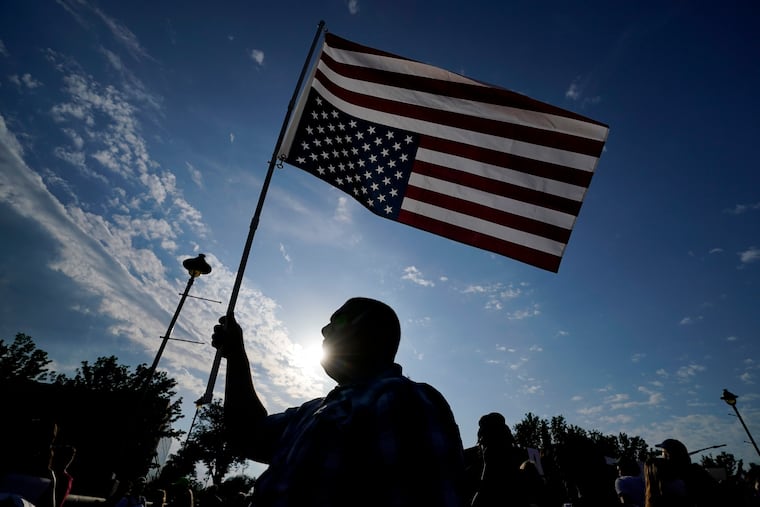In Congress and the courts, America’s vision of itself faces a challenge
Our nation’s struggle is about much more than who we are — it's about who we choose to be.

America’s judicial and legislative systems have rocked us with successive gut punches, as years of judicial precedent were leveled with the overturning of Roe v. Wade, and the pathologies of the former president were made plain by a former aide.
In both instances, we were relieved of our confidence in America’s stability. After watching a 50-year precedent overturned by a Supreme Court that put partisanship before people, we now know that America’s fight is about much more than abortion. It is about the country we choose to be. Will we be a place where the few can manipulate the levers of power to overrule the many, or will we be a place where democracy gives us all an equal say?
That is the question I asked myself as I watched 26-year-old Cassidy Hutchinson testify about Donald Trump’s unhinged behavior during the Jan. 6 insurrection. Hutchinson, an aide to then-White House chief of staff Mark Meadows, testified that Trump knew there were armed people in the mob and urged security to let them into his “Stop the Steal” rally that preceded the riot. She said she was told he physically assaulted a Secret Service agent while trying to force his way to the Capitol to appear with the rioters. She testified that he approved of the mob’s threat to “hang Mike Pence.” While portraying Trump as a plate-throwing, expletive spewing megalomaniac, Hutchinson illustrated an important point: America’s union is fragile, and all it takes is the right person — or the wrong person — to tear it apart.
» READ MORE: The Supreme Court’s draft ruling on abortion invoked ‘state’s rights.’ Here’s why that’s troubling. | Solomon Jones
In the coming months, we will see tensions between states whose laws come down on different sides of the abortion debate. In Texas, for example, private citizens can sue abortion providers from out of state. Missouri may soon follow suit. In California, a new law seeks to shield from civil liability those who provide or receive abortions, and in Massachusetts, the governor has instituted rules to keep state officers from cooperating in abortion investigations.
There is ample reason to compare the opposing state laws and the air of division to the atmosphere that reigned prior to the Civil War. However, the current rift in American life is not tied to a single issue, the way slavery divided Americans in the 19th century. Rather, our divide is driven by the relentless push by a conservative minority to hold on to power for itself.
Donald Trump’s desperate attempt to remain in office after his election defeat may be the best example. According to the damning testimony we’ve heard during the House Select Committee hearings, Trump’s campaign fielded fraudulent slates of electors in states he lost. But it didn’t stop there. Trump personally pressured state officials to find thousands of nonexistent votes, pushed Justice Department officials to say the election was corrupt, and summoned an armed mob to the Capitol, endangering the lives of many, including his vice president.
» READ MORE: How one Capitol police officer’s experience underscores the role of race on Jan. 6 | Solomon Jones
However, this is about much more than Trump and his followers. It is about a long-term strategy that conservatives utilized to pack the Supreme Court with judges that will do their bidding. They started with Roe v. Wade, making a decision that polls show most Americans oppose. The court does not intend to stop there, and conservatives have found the perfect person to deliver that message.
Clarence Thomas, who has sat silently for much of his 31-year tenure, is now a key figure in a 6-3 conservative majority on the Supreme Court. Now Thomas has suddenly found his voice.
After the court overturned Roe v. Wade and left abortion to the states, it was Thomas who wrote a concurring opinion suggesting that the court should revisit cases on contraceptives and gay marriage. Whether we agree with those rights or not, we should agree on this: The court has a strong conservative majority, which means it can ignore the other side.
Eventually, in a country divided by race and class, politics and privilege, the Supreme Court will strike down a right we all care about. But if we can agree to come together here and now, we can stop it before that moment comes.